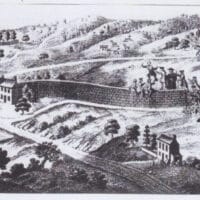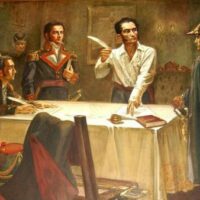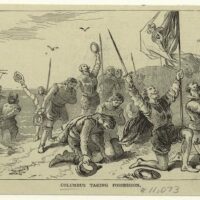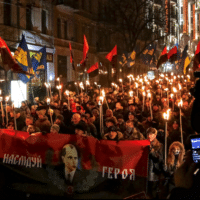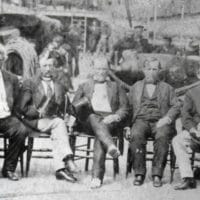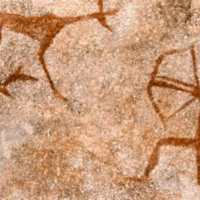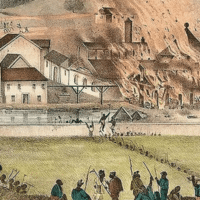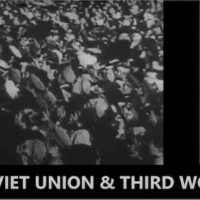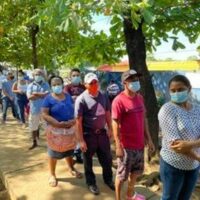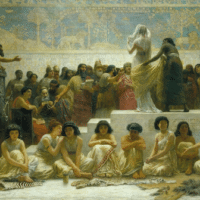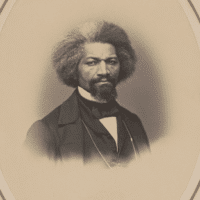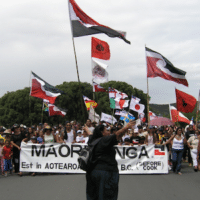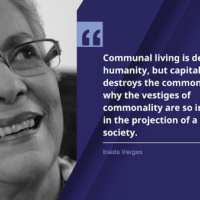-
State archive glitch reaffirms Israel’s genocidal intent
Recently unearthed statements from Israel’s founders endorsing ethnic cleansing and violence during the Nakba will only be shocking if you are not familiar with the long history of Zionist leaders and thinkers showing genocidal intent towards Palestinians.
-
Against enclosure: The commoners fight back
Articles in this series: Commons and classes before capitalism ‘Systematic theft of communal property’ Against Enclosure: The Commonwealth Men Dispossessed: Origins of the Working Class Against Enclosure: The Commoners Fight Back by Ian Angus In 1542, Henry VIII gave his friend and privy councilor Sir William Herbert a gift: the buildings and lands of a […]
-
The missing chapter in Malcolm X’s Biography they hid from you
The missing chapter in Malcolm X’s biography must be fervently resurrected.
-
Argentina warns of legal action after documents reveal Britain shipped nukes to Falkland Islands during 1982 conflict
ARGENTINA warned that it may take action after leaked documents revealed that Britain shipped 31 nuclear weapons to the Falklands during the 1982 conflict.
-
A lesson from Simón Bolívar: ‘To Hesitate is to Perish’
Speech in remembrance of the One Hundred and Ninety-first Anniversary of the Liberator Simón Bolívar’s passage to immortality, on December 17, 1830, celebrated at Rivadavia Park in the Autonomous City of Buenos Aires, at the foot of the monument to Simón Bolívar.
-
Globalization from Christopher Columbus, Vasco da Gama and Ferdinand Magellan until today
In North America, the European colonization started during the 17th century, mainly led by England and France, before undergoing a rapid expansion during the 18thcentury, an era also marked by massive importation of African slaves
-
I want to get our rights from the Americans who harmed us: The fifty-first newsletter (2021)
The persecution of Julian Assange is a fundamental assault on journalism, press freedom, and freedom of expression.
-
Protecting the Nazis: The extraordinary vote of Ukraine and the USA
The Ukrainian vote against the U.N. resolution against Nazism was motivated by sympathy for the ideology of historic, genocidal active Nazis. It is as simple as that, writes Craig Murray.
-
Frederick Douglass and American Empire in Haiti
Toward the end of his life, Frederick Douglass served briefly as U.S. ambassador to Haiti. The disastrous episode reveals much about the country’s long struggle for Black sovereignty while always under the threat of U.S. empire.
-
‘The Dawn of Everything’ gets human history wrong
Is inequality inevitable? Is freedom just a choice? Two materialist critiques of a widely-praised book.
-
It’s all in the flag: Bussa’s Rebellion and the 200-year fight to end British rule in Barbados
Prince Charles, as a representative of Queen Elizabeth II, was in attendance, providing a royal seal of approval. Barbados gained its independence in 1966, though the new nation kept ties to its former overlords by keeping Elizabeth II as a symbolic head of state.
-
Britain’s legacy of brutal slavery in Barbados
Yes, the British Empire is indeed one colony smaller as Barbados formally declared itself independent of its colonial rulers after 400 years yesterday in a big ole fancy ceremony attended by all kinds of dignitaries.
-
Red Star Over the Third World w/ Vijay Prashad: Lessons of Soviet History, Part 2
Russia’s October Revolution in 1917 and the rise of Soviet power reverberated across the world, from Latin America to Africa to Asia, and Middle East – that part of the world that lived under the ravages of colonialism and under-development.
-
Details of 1948 Massacres against Palestinians revealed in classified Israeli documents
Israeli government discussions on the massacres perpetrated by Israeli soldiers in 1948 were declassified for the first time this week in an investigative report published by the Israeli newspaper Haaretz and the Akevot Institute for Israeli-Palestinian Conflict Research.
-
Thanksgiving glorifies the abhorrent colonization of Indigenous Peoples
From Columbus Day to Independence Day to Thanksgiving, the U.S. pretty much specializes in taking dates that celebrate genocide and discrimination, and repackaging them as family-friendly holidays.
-
U.S. threatens regime change in Nicaragua
Nicaragua has been a target of U.S. aggressions since the 1850s. The Biden administration’s attack on the newly elected government is the latest chapter in a long and sordid history. Eyewitness accounts of the electoral process reveal the manipulations and lies concocted by the U.S. and its corporate media partners in this latest regime change effort.
-
Women’s work in the first civilisations
The work performed by women, particularly work in the household and in the health sector, has received much attention in feminist and left-wing debate in recent years.
-
SPEECH: Frederick Douglass on John Brown, 1860
On December 3rd, 1860, Frederick Douglass was set to address an anti-slavery rally at Boston’s Tremont Temple Baptist Church, held to commemorate the death of the radical abolitionist John Brown and to mark the one-year anniversary of his ill-fated raid on the federal arsenal at Harper’s Ferry Virgina.
-
The driver of dispossession
Tina Ngata explains the social and legal legacies of a 15th-century Christian principle that paved the way for imperial violence in, and far beyond, New Zealand.
-
The imprint of an insurrectional past: a conversation with Iraida Vargas and Mario Sanoja
Two eminent anthropologists talk about Venezuela’s history and its relation to the present.


